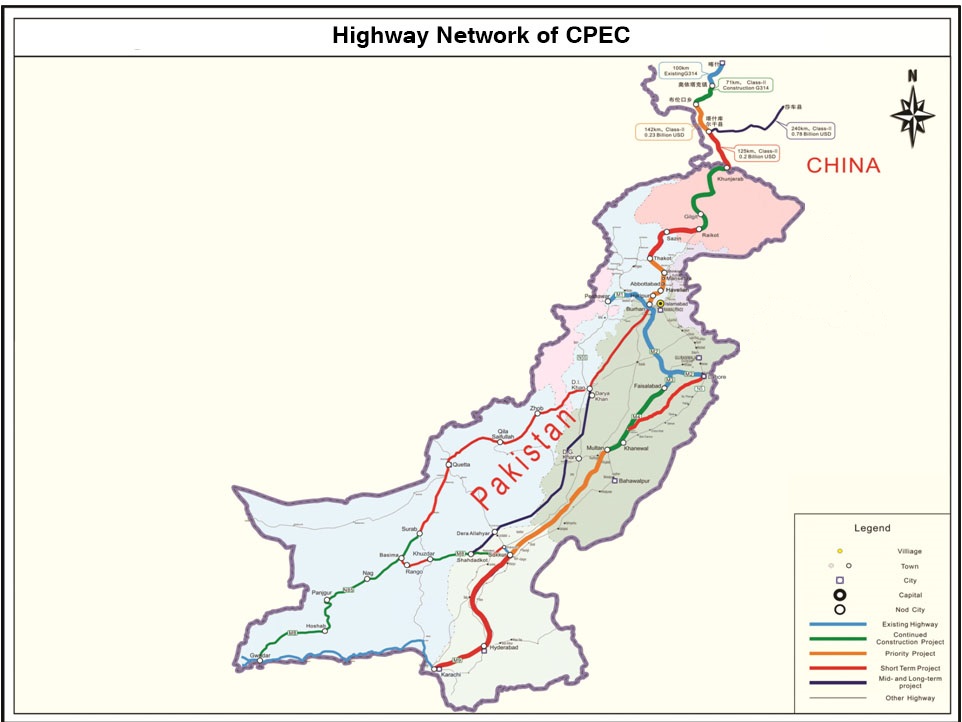Beijing’s recent decision to increase diplomatic, economic and strategic ties with Pakistan is part of a broader strategy to bolster China’s regional influence at Washington’s expense.
China’s relations with Pakistan have been characterised by a new level of engagement as the Chinese leadership expands its role and influence in an area strategically relevant for Beijing’s core interest. In February, Beijing offered a US 500 million loan to Pakistan through the Industrial and Commercial Bank of China to support Pakistan’s diminishing foreign currency reserve and boost its economy. Separately, the Pakistan Central Bank has chosen to replace the US dollar with the Chinese Yuan for all the bilateral and investment activities including the China Pakistan Economic Corridor (CPEC) projects, estimated around USD 50 billion. This is a setback for Washington, which is striving to remain an influential player in the region, and poses a serious challenge to the U.S.-led regional security architecture.
President Trump’s recent accusations that Pakistan serves as a safe haven for Al-Qaeda acolytes created friction with Islamabad, which has repeatedly been accused of being slow to counter the spread of radical organisations within its borders in the past. On other occasions, Washington has threatened to stop significant military assistance, including withholding USD 255 billion in military assistance to Islamabad. The deterioration of Islamabad’s ties with Washington represents a critical opportunity for Beijing to further enhance the level of strategic cooperation with Pakistan. For its part, Pakistani Defence Minister Khurram Dastgir Khan recently stressed that Pakistan is fully committed to a “regional recalibration of its foreign and security policy.”
Investing in infrastructure
Under President Xi ’s watch, China is working to develop a trade an infrastructure network linking it and Pakistan. As part of its One Belt One Road (OBOR) project – a gigantic infrastructure project across 60 countries that is expected to closely integrate China into the broader Eurasian economy – China’s investment in CPEC will provide a transportation and shipping link from the Pakistani ports of Gwadar and Karachi with the Xinjiang region in northwestern China.
Above all, strategic shifts in the last decade have turned Pakistan in a critical ally for Beijing, which seeks to undermine Washington’s leverage and cement its presence in Central Asia and the Indian Ocean. Pakistan is especially important in this endeavor as it provides direct points of access to the Persian Gulf region and South Asia, which Beijing views as among the most pivotal arteries for maritime trade and the transit of energy supplies. China has built and expanded a major port at Gwadar, a city near the oil-rich Persian Gulf and the strategic Strait of Hormuz. China’s growing presence in the Gwadar port is considered part of a decisive strategy to reduce Beijing’s exposure to the so-called “Malacca Dilemma”. This concept – originally laid out by President Hu Jintao in 2003 – underlines China’s need for alternative shipping routes to reduce the countries dependency on potentially vulnerable seaborne energy imports through the Strait of Malacca.
Beijing is extremely dependent on fossil fuels, such as crude oil; in 2017 it surpassed the United States to become the largest annual importer of crude oil. A recent report of China’s attempts to acquire a military base on the Jiwani peninsula to enhance its military presence in Pakistan has created concerns over Beijing’s strategic engagement in the Indian Ocean. Beijing wants to expand is its military posture and naval power projection in the region, especially along the sea line of communication connecting China to oil sources in the Persian Gulf oil. Since 2017, China has fortified its presence in the Gulf region through the acquisition of a naval base in Djibouti and its presence in Gwadar port is a crucial element in enhancing its naval projection in the region.
Projects that are part of CPEC (Source: Wikimedia)
Military ties
There is no doubt that China’s economic, diplomatic and strategic cooperation with Pakistan has contributed in cementing a “truly iron brotherhood” between the two nations. Over the decades, Beijing has fostered strategic cooperation with Pakistan, supporting Islamabad as a key military partner and providing it with various hardware and technology that played a major role in accelerating Pakistan’s nuclear and ballistic program in between the end of the 1980’s and the 1990’s. On several occasions, Beijing has offered decisive contributions to enhance Pakistan’s military preparedness, mainly as a tool to contain India’s rise as a military power.
Pakistan accounts for more than 30% of China’s arms exports, making it the primary global consumer of Chinese weaponry. China and Pakistan have established profitable military procurement contracts, including the production of 20 CH3 Unmanned Combat Aerial Vehicles developed by China Aerospace Science and Technology Corporation, whose contribution has significantly boosted Pakistan’s unmanned aerial military program.
Major geopolitical shifts have affected the region in the wake of the rise of Al-Qaeda-inspired terrorist groups, whose insurgent activities represented a major source of instability for Islamabad. Since 2000’s Beijing’s growing strategic interest in the region and cooperation with Islamabad has expanded due to the spread of radical and separatist movements. Some of these – such as the East Turkestan Islamic Movement (ETIM), which has staged several terrorist attacks in the Xinjiang Autonomous Region – have established operational bases in remote areas along the Sino-Pakistani borders. Chinese leaders have increased the scope of counterterrorism efforts while pressuring the Pakistani ally to lead a more robust role in curbing insurgent groups with relevant ties with separatist organisation operating in China.
Aside from undermining America’s presence in the region, Beijing is now considered as a viable alternative to Washington and as a major regional actor capable of addressing geopolitical, economic and regional security challenges. Pakistan’s renewed entente with Beijing is a clear consequence of Washington’s inability to recalibrate its role and commitment in the region coupled with Trump Administration’s harsh line on Pakistan. Further deterioration of U.S.-Pakistan relations could encourage more countries follow Beijing’s leadership, consolidating China’s leadership in the area.











